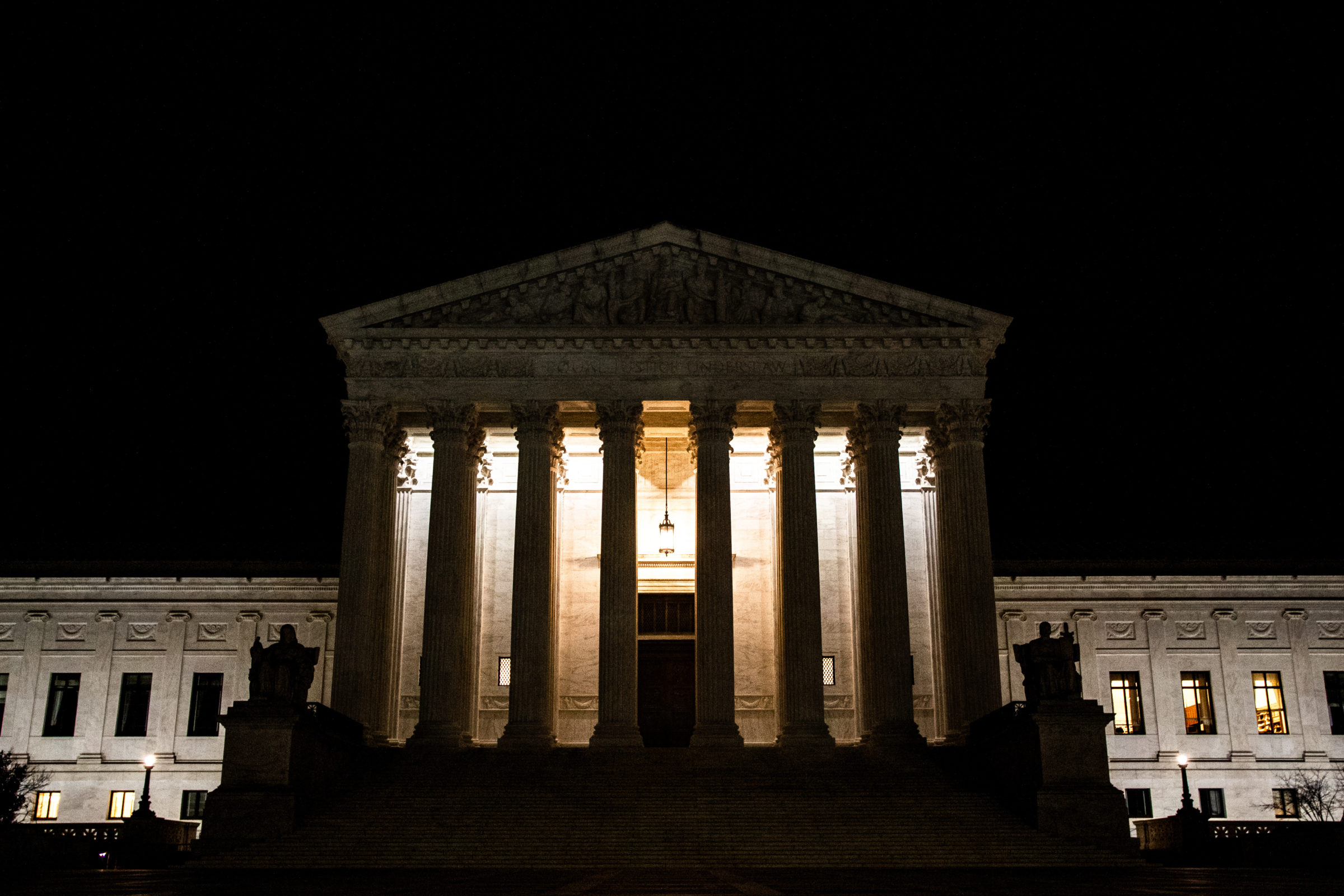Conservatives, Not LGBT, Most Threatened by Businesses Refusing Service
Originally published at The Epoch TimesThe U.S. Supreme Court recently ruled that it’s unconstitutional for Colorado to punish a commercial designer for refusing to create a same-sex wedding website in violation of her Christian beliefs. In 303 Creative v. Elenis, the Court didn’t, as its critics contend, validate discrimination based on sexual orientation. Indeed, the Court explicitly didn’t rule that businesses can refuse service simply because a customer is gay. Rather, the Court found that designing a webpage is a form of speech protected by the First Amendment. In other words, the case protected against state-forced speech. Nothing more.
It’s indisputable that LGBT people remain a specifically “protected class” under the Civil Rights Act of 1964 and other federal and state laws and regulations. These protections now often include transgender people. The 303 Creative case didn’t change this. Thus, a service station still can’t legally refuse to allow a gay person to buy gas. A restaurant can’t refuse to sell food to lesbians. A bank can’t refuse to open an account for a transgender woman.
Yes, some states allow doctors to legally refuse “gender-affirming care,” such as prescribing puberty blockers or performing mastectomies on 14-year-old girls who feel they’re boys. But again, the medical conscience issue isn’t about enabling discrimination but protecting medical professionals from being forced to perform specific medical interventions to which they have a moral objection. Medical conscience laws clearly don’t permit doctors to generally discriminate based on sexual orientation by, say, refusing to treat an auto accident patient brought into the emergency room because the doctor thinks the patient is gay.
In contrast to these overblown concerns about LGBT rights in the public marketplace, there’s a form of business discrimination that isn’t forbidden in federal or state law—refusing to do business based on a customer’s political, moral, or philosophical beliefs.
For example, last December, a planned Family Foundation dinner event was canceled by the restaurant in which it was to be held only 90 minutes before it was to start. Why? The restaurant’s staff had researched the group and objected to its conservative positions on LGBT issues and abortion. And who can forget that time when the former press secretary for Donald Trump and now governor of Arkansas, Sarah Sanders, was literally kicked out of a restaurant because the staff and owner loathed the Trump administration?
The most insidious form of viewpoint discrimination—known as “de-banking”—has members of the financial industry seemingly refusing to do business with groups or individuals whose beliefs or political views management opposes—almost always meaning conservatives. And it’s all perfectly legal because political or moral beliefs aren’t protected classes under civil rights laws.
Case in point. When former Kansas Gov. Sam Brownback ended his service as the U.S. State Department’s ambassador-at-large for international religious freedom, he founded a non-profit, non-partisan organization called the National Committee for Religious Freedom (NCRF), dedicated to defending religious expression in the United States. Within weeks after the NCRF was established, without warning, Chase Bank allegedly suddenly closed the organization’s accounts.
Why? The bank has never made the reasons clear. But it wasn’t because the NCRF was engaging in illegal activity or not paying its bills. Rather, the organization defends freedom of religion in all aspects of life—including when operating a business—and so it’s likely that Chase de-banked the NCRF because it was perceived (falsely) as enabling discrimination.
NCRF’s de-banking was just the latest example of Chase Bank’s seeming viewpoint discrimination against conservatives. Indeed, it has gotten so flagrant that 19 Republican state attorneys general just wrote a letter to Chase (pdf) accusing the behemoth financial institution of systematically de-banking conservative organizations, citing several recent examples as establishing a “pattern of discrimination.”
Gun shops and firearms manufacturers—perfectly legal businesses protected by the Second Amendment—are also increasingly being denied financial services. For example, the Bank of America announced it would refuse to provide loans to gun manufacturers that make what are called “military-style” weapons (pdf). Citibank refuses to provide financial services of any kind to firearms retailers that don’t abide by certain gun control procedures, such as refusing to sell firearms to anyone under age 21, even though it’s usually perfectly legal for them to sell to younger adults.
How bad could things get? Recent occurrences in other countries offer a foreboding warning. The government of Canada infamously cut off the bank accounts of truckers protesting federal COVID policies, and the financial institutions went right along.
And now, Nigel Farage—one of the United Kingdom’s most prominent political leaders who is loathed by the Establishment because of his leadership on Brexit—has been extensively de-banked. Not only did his existing financial institution suddenly cancel all of his accounts, but Farage recently reported that nine other banks have refused to do business with him.
This is financial excommunication that not only would prevent victims from participating in the economy but also sends a chilling message to others with “disapproved” beliefs that they had better keep their big traps shut if they know what’s good for their banking relationships. If something like that can happen to Farage, it can happen here too, say to Donald Trump or Ron DeSantis.
LGBT activists’ worries about the 303 Creative case opening the door to discrimination are not only overblown but also don’t comport with existing civil rights laws. On the other hand, there are no legal impediments to viewpoint discrimination, and the industries engaging in it are often far more crucial to its victims than obtaining a web design for a wedding. Indeed, with American corporations becoming increasingly woke, those most at risk of being excluded from crucial public accommodations such as banking aren’t sexual minorities but conservatives. If this trend continues, civil rights laws may have to be amended to add political or moral beliefs as an additional protected class.
